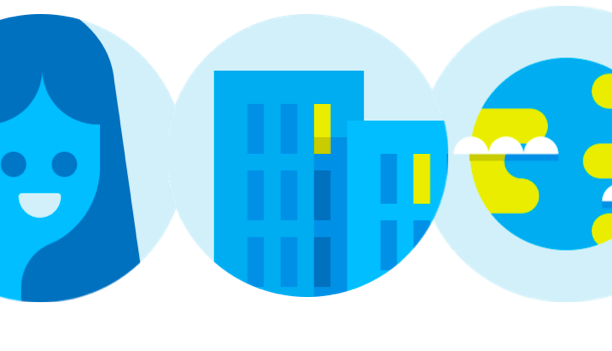
Addiction
The 3 Career Paths—Which Are You On?
People are driven to find meaning in their work by following one of three paths
Posted June 10, 2015

In working with tens of thousands of professionals and partnering with leading workplaces scientists, we have come to find that people are driven to find meaning by following one of three paths: impacting Individuals, Organizations or Society.
How We Seek Meaning
My neighbor when I lived in Brooklyn is an eye doctor. She sees patients every day. The vast majority of her patients suffer from a handful of common conditions, many natural byproducts of old age. She helps people every day in a very tangible way. She loves it.
I wouldn’t last a week as a doctor. After seeing a couple of cases of glaucoma or cataracts, I would be ready to move on. Check—got it. What’s next? Where some people see each person as unique and wonderful, I see patterns and have trouble focusing on each person as an autonomous individual. Some people have trouble seeing the forest through the trees. I tend to see the forest and not the trees.
My friend James Shepard once roughly described this as the difference between a doctor and a hospital administrator. Many people want to directly serve those in need, while others (like me) like to build the systems that enable and support doctors. For the latter, our playground is advancing organizations. We see organizations and groups of people as the organizing units of society.
My cousin, Jason Elliott, works for the mayor of San Francisco. He is neither a doctor or hospital administrator. His passion is for working at a policy level, analyzing how city, state, and federal programs impact hospitals and clinics and can also set those places up better for success. He is about as far removed from the front lines as you can be, but the impact of even the smallest decision at that level can impact thousands of patients.
The Three Paths
Are you building a career to optimize your impact at an individual, organizational and societal level? Examples in healthcare help describe these three paths, but the same three paths are present in every industry, profession and organization.
Here are how three amazing women talk about their paths and why they selected them. Which one most resonates with you?
Individual: Abigail Donahue
Face-to-face with human potential, I feel my whole heart at work. These moments exemplify times when I’ve felt the deepest sense of purpose in my life. Working alongside my students, directly serving communities in need, feels meaningful and engaging in ways I can’t fully articulate. I observe awareness and altruism accumulating in small acts of kindness. Someone who needs food is fed; someone who wants a chance to speak is heard. In these moments, I see a new world evolving right in front of me. For me, individual transformation leads to social impact. Though nebulous social issues require vast structural shifts, I believe personal connection to these issues is what changes society. Beliefs, theories, policies, and laws need to change for social justice to occur; each person’s actions drive these changes; and embodying these changes takes a personal commitment from everyone. I see my work as part of this social change feedback loop.
Organization: Elaine Mason
My role enables me to reach thousands of people, setting them up in the best way possible to achieve personal and professional success. My team recently finished working with a newly-formed business group, where we worked with the senior leadership team to redefine how their organization would produce and market new products. This was the first time the group worked this way, and the results of our work impacted every member of the organization. At the close of the project, the group president hosted a town hall to explain the new way of working and the rationale behind all of the changes. During the town hall’s open Q&A, many team members thanked her for thinking things through and making it easier for everyone to succeed in their group. One team member commented that it was the first time he ever experienced a leader that was so thoughtful. In response, the group president asked my team to come on stage and acknowledged that she hadn’t worked that way in the past, but in partnership with my team, she saw the importance of defining meaning in everyone’s role. Knowing that my team was able to improve the work life of so many people reminds me of how impactful my work can be across an organization.
Society: Tera Pierce
The laws of our land usually come from one person or group who experience a barrier in their life and bring it forward to a governing body, trying to change it for the next person. It is, in a way, a form of paying it forward. Generally, laws are not perfect the first time around and have unintended consequences. It is up to the legislature to listen to their constituents and amend our laws so that they can do what they are intended to do. Being involved in this kind of work is exciting, empowering, interesting, and constantly changing. I love the work I do. As a trained social worker now working in public policy, I am able to facilitate changes to policies that have negative impacts on underserved and vulnerable populations, as well as craft new policies that will help break the cycle of poverty or addiction and expand access to education and vital services. It is fascinating work and changes daily. On a given day, I can be working on policy that stops predatory businesses from posting mugshots online, to mandating vision screenings for kids in school to prevent blindness and help them succeed.
In our research and work with organizations, we have come to understand that to find meaning and alignment in your work, you need to be able to link what you do everyday to the level of impact that matters to you.
Which career path is the right one for you?
How does it translate to your work everyday? We've developed a free 10-minute assessment to help people better understand their unique approach. We hope that it will help you better collaborate with coworkers and make career decisions that are aligned with who you are. Click here to take it (it's free!).
Aaron Hurst is CEO of Imperative, the advocate for the 50 million purpose-driven people in the US workforce - people who prioritize meaning over money or ego. We believe they are the future of the workforce, the economy and sustainable cities. He is also the founder of the Taproot Foundation and author of the top rated The Purpose Economy. Follow him on Twitter: @Aaron_Hurst.



